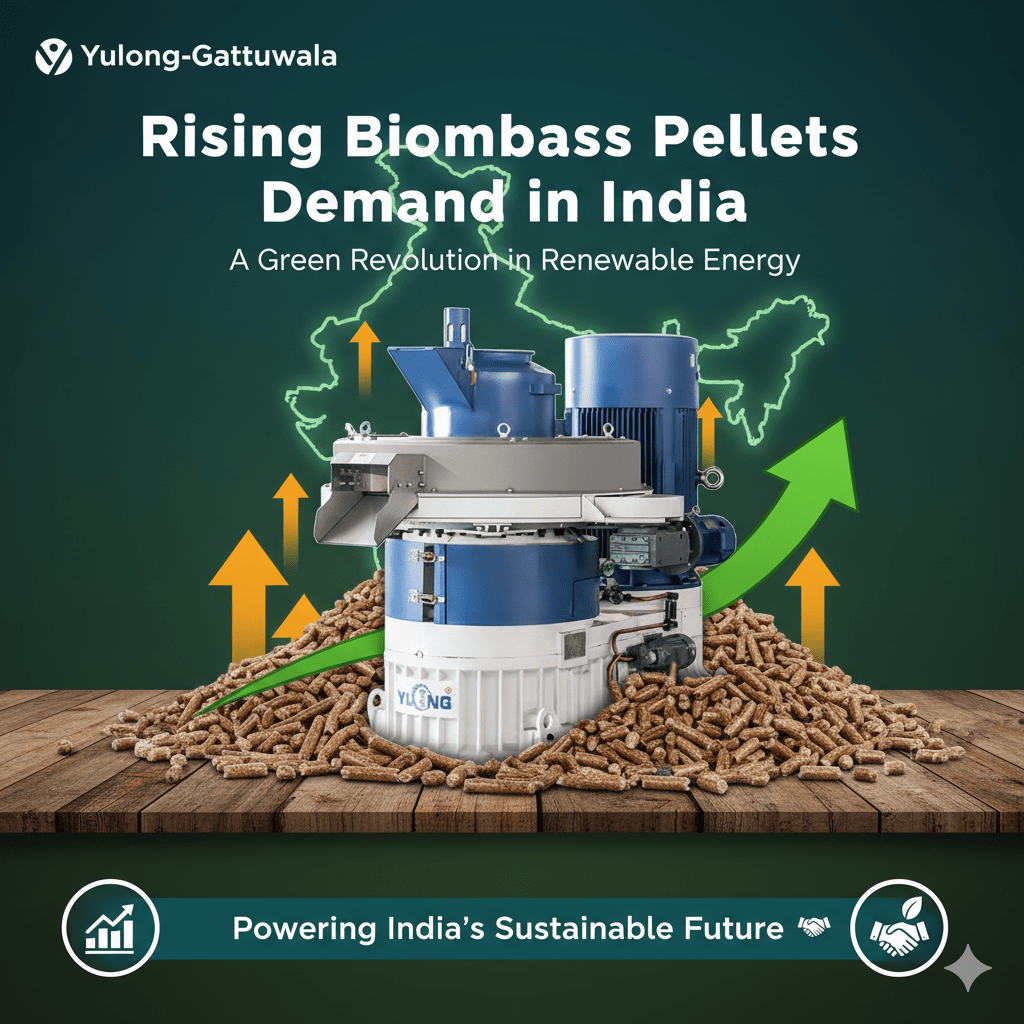- November 10, 2025

India is witnessing a rapid rise in the demand for biomass pellets, driven by the growing focus on clean energy, sustainability, and reduced carbon emissions. As industries and households shift toward renewable alternatives, biomass pellets have become a game-changer for the energy sector. They are cost-effective, eco-friendly, and align perfectly with India’s renewable energy goals.
The demand for biomass pellets in India is growing exponentially due to multiple factors. These pellets, made from agricultural residues like rice husk, sawdust, paddy straw, and sugarcane bagasse, offer an efficient and sustainable source of fuel. Here’s why they are becoming popular:
- Government Support:
The Government of India, through the Ministry of New and Renewable Energy (MNRE), promotes biomass energy under its “Waste to Energy” and “National Bioenergy Mission” programs. Financial incentives and subsidies for biomass projects have boosted investment in pellet production. - Industrial Demand:
Large industries such as cement plants, textile mills, and food processing units are replacing fossil fuels like coal with biomass pellets to reduce emissions and meet sustainability targets. - Environmental Awareness:
With rising awareness about air pollution and climate change, more companies and households are switching to biomass pellets as an eco-friendly energy solution. - Export Opportunities:
India’s biomass pellet producers are also tapping into global markets like Europe and Japan, where demand for clean-burning biofuels continues to grow.
According to recent studies, India’s biomass pellet demand has crossed 10 million tonnes per year, and the number is expected to double by 2030. Northern states such as Punjab, Haryana, and Uttar Pradesh lead in production due to the availability of abundant agricultural residues.
The Yulong-Gattuwala partnership has also strengthened India’s pellet manufacturing capacity, providing advanced pellet machines capable of producing 1 to 15 tons per hour, meeting both domestic and export demand efficiently.
The MNRE’s Biomass Programme offers capital subsidies and financial assistance for biomass projects. Initiatives like SAMARTH (Sustainable Agrarian Mission on Use of Agro Residue in Thermal Power Plants) encourage industries to adopt biomass co-firing, further increasing pellet consumption.
In addition, the “Make in India” campaign has supported the domestic manufacturing of pellet machines, reducing dependency on imports and creating local jobs.
While the sector is growing rapidly, challenges such as high raw material transportation costs, seasonal residue availability, and limited awareness among rural users still persist. However, with technological advancements and the expansion of organized pellet manufacturing units, these issues are being addressed steadily.
Looking forward, India’s biomass pellet market is expected to grow at a CAGR of 10–12% over the next decade. The push toward achieving net-zero emissions by 2070 will further enhance the role of biomass energy.
The biomass pellet industry in India is at the forefront of the green energy revolution. With government backing, rising industrial adoption, and technological innovation from manufacturers like Yulong-Gattuwala, biomass pellets are paving the way toward a cleaner, more sustainable energy future.
If you’re considering investing in renewable energy, biomass pellet manufacturing is one of the most promising ventures in India today.
📞 Interested in setting up a biomass pellet plant in India? Contact Gattuwala Energy for expert consultation, equipment, and government subsidy support.

How to Start Biomass Pellet Manufacturing Business?

Pellet Machine Authorized Dealer in India



Kaunain Merchant
November 30, 2025Hi,
I am looking to set up a 2 TPH biomass pellet plant in south India near bangalore.